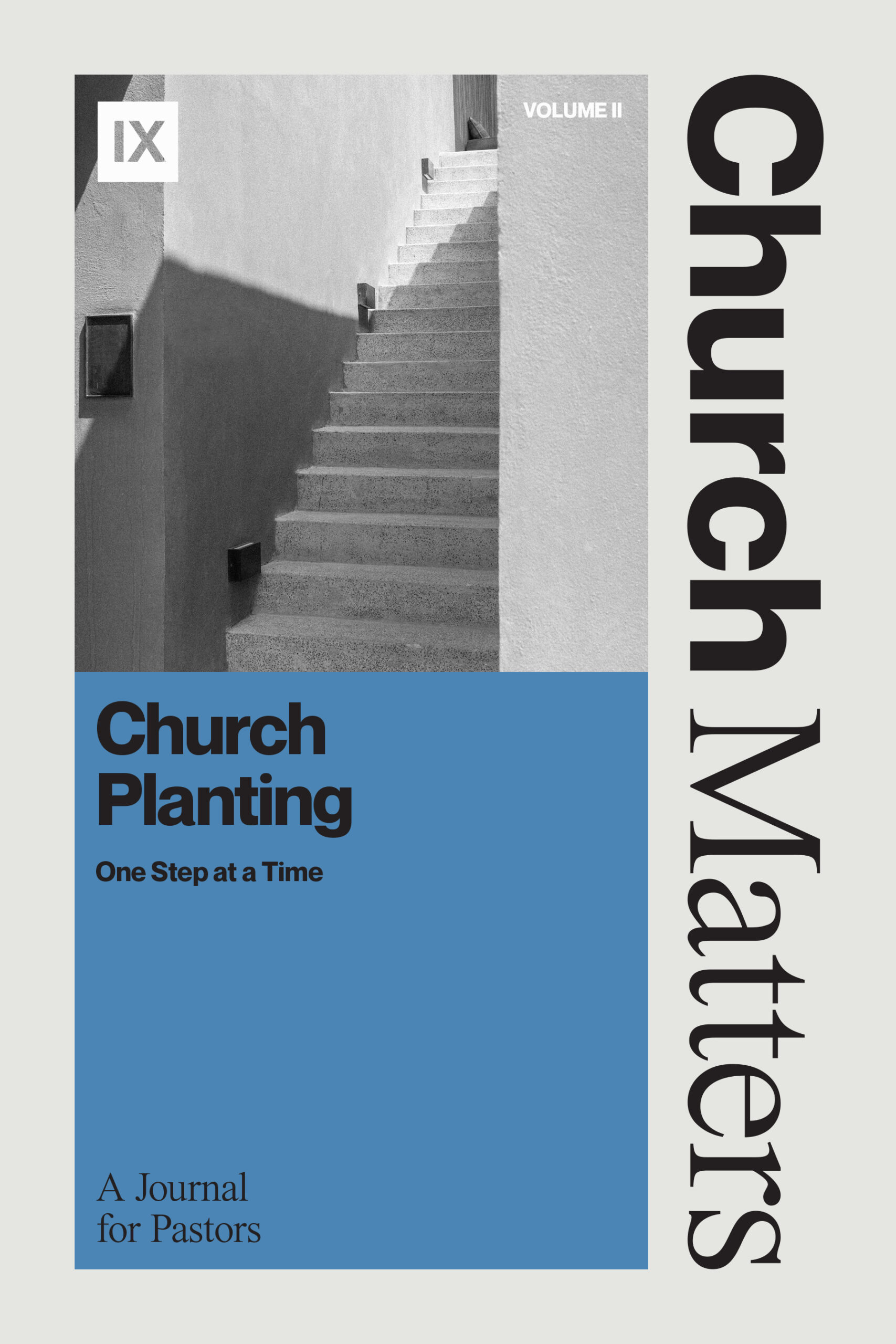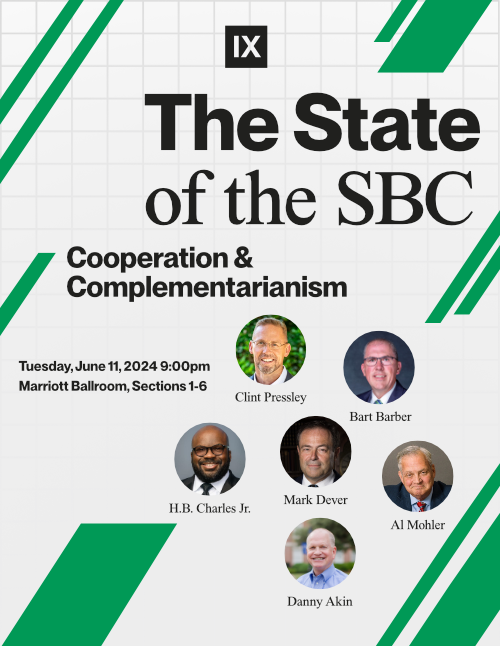Why Not to Plant Churches
Since the late 1980s, I’ve engaged many pastors and would-be pastors regarding church planting. I generally ask why they desire to plant. Sometimes the response lacks sound reason. Let me offer a few reasons not to plant churches.
TAP THE BREAKS
1. Don’t plant a church to escape from dealing with pastoral issues.
Perhaps a brother faces the long, grinding work of biblical reformation, and so he wonders about planting. The fact is, we might not solve our problems by planting another church. We might just take our problems with us. Dealing with membership issues, honesty in church rolls, or church discipline challenges every pastor. Who can blame a pastor for leaving—unless, of course, one is called by God to shepherd his flock?
Escaping difficulties by planting a church will only ensure that different difficulties will follow. When I planted a church after pastoring three other churches, I thought I would leave behind many of the typical issues faced by SBC pastors. I did leave some of them behind, but I inherited other issues common to church starts.
You cannot escape. Issues come with the territory. People come with problems. But that’s why God has called you to the work: to point your congregation to Christ and his glory in all things; to serve as an example of godliness in trying times; to feed the flock the Word of God; to nurture and admonish them to follow Christ; to apply the gospel to every area of life.
2. Don’t plant a church on impulse.
Impulsiveness implies no strategy or increasing burden by the Spirit, just a mess that looks for a quick solution.
Church splits have mothered many new churches. Trouble brews. A fight erupts. Sides are chosen. Presto! A new church is formed.
Mercifully, in God’s sovereign kindness, many good churches have started out of splits. These churches have legitimate reasons for their start if they’ve faithfully pursued reconciliation to no avail. If a split occurs over disagreement on the color of the carpet or the time Sunday School begins, then humility and repentance must prevail over an abrupt departure.
However, if a split occurs over the gospel, the essentials of the faith, qualified church leadership, maintaining regenerate membership, or exercising biblical church discipline, then a new church might be necessary. I say might because these doctrinal issues can possibly be worked out with patient, humble teaching.
Never rush to plant in a moment of impulsiveness. Seek to display the spirit of Christ in all things. Only when serious doctrinal and gospel issues cannot be resolved must a split occur for the sake of Christ’s glory in the community. And in that setting, the new church must never swagger with pride that they are the real church. Trouble could follow the new church, too, so give care to approach starting a new work with humility.
3. Don’t plant a church as a problem-solving panacea.
Such idealism exalts man rather than the Lord of the church. Sinners are always messy, including the sinner who happens to be the church planter. New churches bring their own problems.
I still faced hidden agendas, unorthodox beliefs, personality conflicts, leadership struggles, financial woes, and a bag full of other issues when I planted a church. Starting a new church doesn’t eliminate problems unless you eliminate people, and that’s not the goal of a new church.
4. Don’t plant a church just because it seems the only option to be a pastor.
Some men view church planting as the means to secure a pulpit. This brings up an important matter: when more pastoral candidates exist than open pulpits, it might be a clear indication that some of that waiting number need to plant churches.
But not all of them; some need to be seasoned a bit longer before starting a new church. Churches do not need to be planted to accommodate men but to exalt Christ.
Some men lack the necessary gifts and calling to pastor, but nonetheless think that they must have a church. Others are harsh and inflammatory, having caused divisions by their personality foibles. So they seek to plant a church where everyone will cooperate with them and overlook their unsanctified personality. Beginning a church to suit such a man lacks legitimacy.
CONSIDERING RIGHT MOVES
So what is a good answer to the question of why someone should want to plant a church? Why start from scratch without any history or tradition, without leadership structure or educational organization, without financial backing or arrangements, without a building or suitable location? Why do it? I would boil a good answer down to three right motives.
First, you should see the need for a new church, not to escape problems but to establish a biblical ministry to reach people for the sake of God’s kingdom. The need is not for a preacher’s platform but for Christ’s glory among a people.
Second, you should sense the call of God on your life to do this work. Test it and weigh it. Evaluate your motives, and consider the demands involved. If none of this deters you from planting a church, then move to the next preliminary steps.
Third, you should hear the affirmation of the spiritually mature in your present church. Test your sense of calling with your pastors, wife, and spiritual mentors. Are they in agreement? Do they recognize God’s preparation in your life and the unique abilities entrusted to you for such a work? The last step: are you willing to risk all for the sake of establishing a new church to the glory of Christ? Only then are you ready to consider planting a church.
YES, PLANT
You might get the idea that I want to talk brothers out of church planting. That’s not the case, but I’m concerned that my brothers understand the demand of Christ as they ponder starting a new church.
They will wear unexpected hats. They must be willing to work long and hard hours, often working another job to meet family needs. They must be willing to trust others who will join them, sharing the load, distributing responsibilities, training leaders, investing in people, and cultivating teachers. They must be accountable to others spiritually, financially, morally, ethically, and ecclesiologically. They must get in the lives of the people among whom they are seeking to establish a church, sharing their joys and sorrows, knowing their heartaches and trials.
Planters must be teachable, realizing there will be plenty of “firsts” that cross the threshold. They will make mistakes and must humbly admit them. They will need course corrections from time to time as their “best-laid plans” fizzle. In God’s providence, this re-directs the new church’s ministry. They must be flexible in plans and organization but unbending in doctrine and commitment to gospel ministry.
Yes, plant churches. But do so after counting the cost. And then joyfully plunge forward.
Related Multimedia

Why Bad Polity Hurt My Church Plant
By Phil Newton









